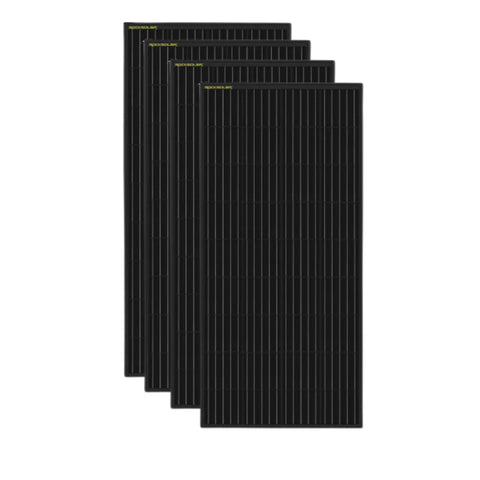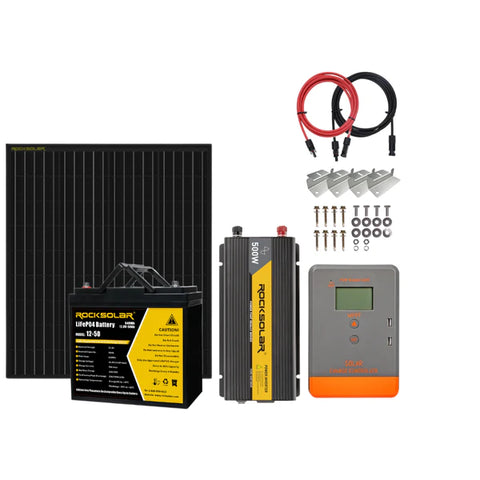In recent years, the world has witnessed a remarkable surge in the adoption of solar energy. Solar panels, once considered a novelty, have become a practical and sustainable source of power for homeowners and cottage enthusiasts alike. The promise of reducing energy bills, minimizing environmental impact, and achieving energy independence has drawn the attention of many. However, a critical question often arises: Is it feasible for home and cottage owners to embark on a DIY solar panel installation journey? In this comprehensive guide, we will explore the possibilities and considerations for DIY solar panel installation, ensuring that you are well-informed before making this eco-conscious investment.

Understanding DIY Solar Panel Installation
Before delving into the feasibility of DIY solar panel installation, it's crucial to grasp the basics of how solar panel systems work. Solar panels harness sunlight and convert it into electricity using photovoltaic cells. This electricity can be used to power your home or cottage, reducing your reliance on traditional grid-based energy sources.
The components of a solar panel system typically include:
-
Solar Panels: These are the heart of the system, responsible for capturing sunlight and generating electricity.
-
Inverter: An inverter converts the direct current (DC) produced by the solar panels into alternating current (AC), which is used to power your appliances and electronics.
-
Mounting Hardware: Solar panels need to be securely mounted on rooftops or the ground to maximize exposure to sunlight.
-
Battery Storage (Optional): Some homeowners choose to include battery storage systems to store excess energy for use during cloudy days or at night.
-
Wiring and Connectors: Proper wiring and connectors are essential to safely transmit electricity from the panels to your home or cottage.
The Feasibility of DIY Solar Panel Installation
Now, let's explore the key factors that determine whether a DIY solar panel installation is feasible for home and cottage owners:
1. Skill Level and Experience:
- Target Keyword: solar products for sale
- LSI Keyword: solar panel kit
DIY solar panel installation requires a certain level of technical knowledge and skills. While some enthusiasts may possess the necessary expertise, others might need to acquire it through training or extensive research. Assess your comfort with electrical work, roofing, and system design before proceeding.
2. Permitting and Regulations:
- Target Keyword: solar panel system for home
- LSI Keyword: solar energy system for home
In the USA, different states and municipalities have varying regulations and permitting requirements for solar installations. It's essential to check with your local authorities to ensure compliance with zoning laws and obtain the necessary permits. Non-compliance could lead to costly legal issues.
3. Budget Considerations:
- Target Keyword: solar panels for home
DIY solar panel installation can be cost-effective compared to hiring professional installers. However, it's crucial to calculate your budget accurately. Consider the cost of solar panels, inverters, mounting hardware, and any additional components like battery storage.
4. System Sizing and Design:
- Target Keyword: off grid solar power systems
- LSI Keyword: home solar system
Designing a solar panel system that meets your specific energy needs requires careful consideration. Factors such as your location, energy consumption, and available sunlight hours must be factored into the design. Online solar calculators and professional consultations can help you determine the right system size.
5. Safety Precautions:
- Target Keyword: portable electric
- LSI Keyword: batteries backup
Working with electricity always carries some level of risk. DIY installers must prioritize safety. This includes using proper safety gear, following electrical codes, and taking precautions to prevent accidents.
The Benefits of DIY Solar Panel Installation
While DIY solar panel installation presents challenges, it also offers several benefits:
- Cost Savings: DIY installations can save you money on labor costs.
- Learning Experience: It's an opportunity to acquire valuable skills and knowledge.
- Control: You have full control over the design and installation process.
Conclusion
Embarking on a DIY solar panel installation for your home or cottage is a feasible endeavor for those with the right skills and mindset. However, it's not a decision to be taken lightly. Careful planning, adherence to regulations, and a commitment to safety are paramount. If you're unsure about your abilities or the complexities involved, consulting with a professional solar installer is a wise choice. With the right guidance, you can harness the power of the sun to create a sustainable and energy-efficient environment for your home or cottage.
For high-quality solar products and systems designed to meet your unique needs, explore the Rocksolar collection: Rocksolar Solar Systems for Home and Cottage.

Make your dream of solar-powered living a reality with Rocksolar!




